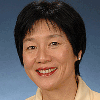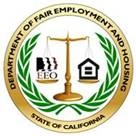Officials
Offical

An immigrant from Hong Kong and a native speaker of Chinese in three dialects, Phyllis W. Cheng was the Department of Fair Employment and Housing director since her appointment by Governor Arnold Schwarzenegger in January 2008. She resigned in October 2014 with the announced intention of returning to the private practice of law.
Cheng received a bachelor’s degree in fine arts from UCLA in 1974 and a master’s in education policy and planning from the same school in 1976. While pursuing her doctorate, Cheng began a 12-year career in public policy as a researcher at the
Cheng then moved to the Los Angeles Unified School District to help it comply with racial integration and federal Title IX sex discrimination regulations. While there she founded and directed a citizens’ commission addressing sex discrimination that monitored a Title VII sanction promoting women into administration, and received a federal grant to study adoption of state civil rights laws, which became the focus of her 1987 dissertation, the New Federalism and Women's Educational Equity.
Cheng was chiefly responsible for passage of California’s version of the Title IX law prohibiting sex discrimination in education. In 1982, toward the end of Jerry Brown’s first go-round as governor, Cheng was state education chair of the National Organization for Women (NOW) when she drafted legislation that, when finally passed by the Legislature, was considered stronger than its federal counterpart.
Governor George Deukmejian appointed Cheng, a fellow Republican, to the Commission on the Status of Women in 1983 where she was embroiled in a partisan battle for control of the traditionally liberal panel. Democratic Assemblywoman Maxine Waters, herself a member of the commission, introduced legislation to cut its budget. Democrats demanded that the commission’s Republican executive director, Margaret Almada, resign. Democratic state Senator Diane Watson, also a commission member, threatened to deny Deukmejian any more appointments to the commission. The battle continued throughout Deukmejian’s two terms.
During this time, Cheng was a semi-regular guest on KNBC-TV’s Emmy Award-winning debate show, “Free–4–All.” She was panelist on 33 shows, which featured attorney Gloria Allred, labor leader Hank Springer and Assemblywoman Marguerite Archier, from 1983-1986. Cheng got the gig after providing a rebuttal to a televised KNBC editorial on pay equity.
Cheng eventually went back to school and earned a juris doctor degree from Southwestern Law School in 1993. Her first job after graduation was as an associate with the civil and human rights law firm Hadsell and Stormer, specializing in employment discrimination. While at the firm, she was appointed to the California Fair Employment and Housing Commission where she served two terms, including a stint as vice chair. She left Hadsell and Stormer in 1995 to start her own practice but continued at the now-defunct commission.
Cheng left private practice and the commission in 1999 to become deputy attorney general for civil rights enforcement at the state Department of Justice. In 2003, she moved over to the California Court of Appeal, Second Appellate District, Division Seven where she served as senior appellate court attorney. She returned to private practice for a year in 2007 and was of counsel at Litter Mendelson, PC, the national employment and labor law firm representing management clients before her appointment as DFEH director.
Director’s Biography (DFEH website)
Interview with Phyllis Cheng (Southwestern Law School)
Phyllis W. Cheng (LinkedIn)
About the Speaker (UCLA Institute for Research on Labor and Employment)
Tables Turn as GOP Fights to Save Funds for Women's Panel (by Douglas Shuitt, Los Angeles Times)
- Latest News
- Chevron Pleads No Contest, Agrees to Pay $2 Million for Richmond Refinery Fire
- PG&E Declares War on Oakland Gnomes, then Quickly Grants Reprieve
- Record Number of High-End Home Sales in California
- Munger Siblings Matched Labor's $85 Million Election Contribution
- Hospitals Double-Billed for Spinal Surgeries…Gaining $67 Million in One Year





